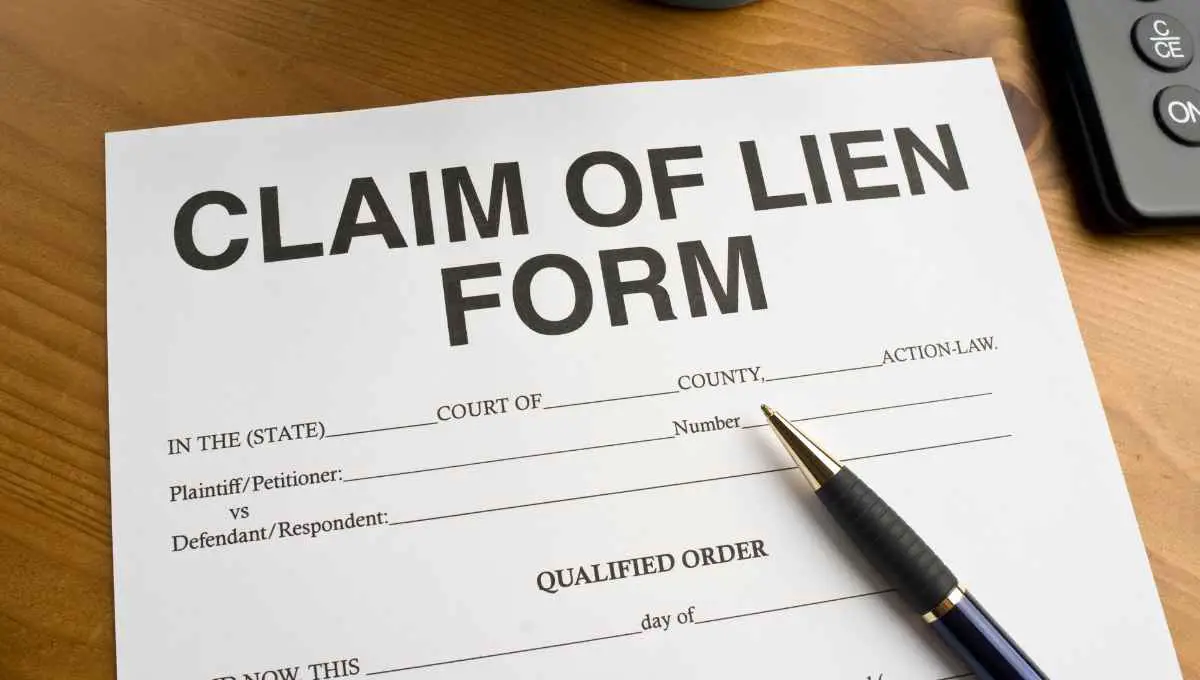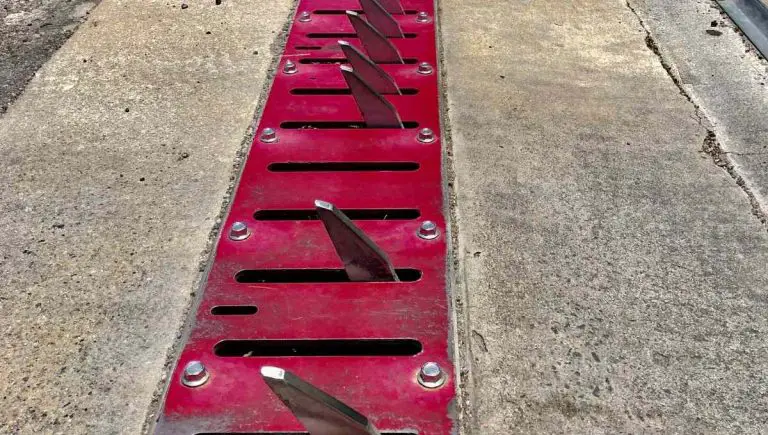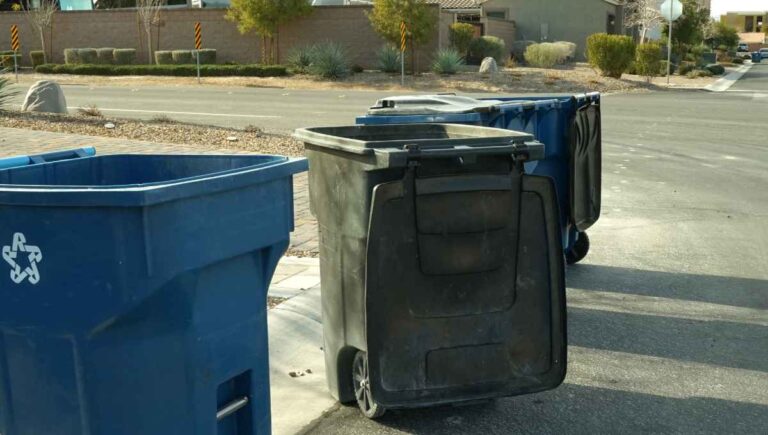Can a Utility Company Put a Lien on My House? (Legal Rights)

Are you concerned that a utility company may try to place a lien on your house due to unpaid bills? Utility liens can be stressful, as they allow the company to claim a legal right to your property until the debt is paid. Is there anything you can do about it?
Utility companies can place a lien on a home if the homeowner has unpaid utility bills, such as water, sewer, or heating. This can occur in most states. Before taking this action, the utility company will usually shut off the utilities if possible.
While no one wants their situation to come to this, liens are a viable threat if you don’t pay your bills. In this article, we’ll discuss your legal options and offer support and options on what to do when your utilities are off.
This post contains affiliate links from Amazon and other stores. This means Yard Blogger may earn a commission if you make a purchase using any of our links. Please refer to our full affiliate disclosure policy for full details.
Here’s a Quick Pro Tip!
We trust utility companies and other creditors to be honest and truthful about debts and assume they will be compassionate about taking care of the debt. But unfortunately, this is not always the case.
If you’re being harassed by creditors threatening to repossess your home or other possessions, you have the right to protect yourself. We suggest protecting your home against those who may attempt to collect your valuables to pay your debts, and we think these will help:
1. Security System – This way, you’ll be alerted if someone you don’t know tries to get onto your property.
2. Door Locks – Protect your home and your possessions.
3. Window Locks – Don’t assume people won’t attempt to open your windows to get inside.
Liens on a Property
If you’ve been unable to pay off your utility loans, you might be looking at a utility company putting a lien on your home or property, such as a vehicle. Let’s talk about what you can do about it.
How Do I Find Out if There Is a Lien on My Property?
To find out if there is a lien on your property, start by contacting the Office of the County Recorder, located in the same county as the property in question. The recorder should be able to inform you of any liens on the property.
While the effectiveness of this method may vary slightly by state, it’s a good start. You may also want to check your state’s government website, like this Pennsylvania site, to see if you can search for a lien record on your property.
Who Can Put a Lien on a Property?
Almost any creditor you owe money to can legally put a lien on your property. Common creditors include banks, contractors, and utility companies. However, these companies typically can only get a lien put against you if they go to court for one.
Utility liens are typically leveled against a property owner only once the property’s utilities have been shut off, and the landowner is still refusing to pay their debts.
Therefore, if there is a lien on your property, you won’t be able to sell it until the debts are paid.
Can Creditors Take Your House?
If the creditor that put a lien on your house is a bank, they may be able to leverage your property, such as your home and vehicles, and even your personal property inside the home, to pay the debts.
Typically, creditors will attempt to remove personal possessions and tangible assets, such as jewelry and vehicles, before attempting to remove you from your home and seize the property.
Still, they have the legal ability to do so if you refuse to pay your debts.
Who Can Put a Lien on My House?
Utility companies, contractors, subcontractors, and banks can put liens on a home due to unpaid debts. Most of these people will need a court order from a judge before processing the lien.
If you have debts and cannot put payments down towards erasing them, consider reaching out to the companies before the company puts a lien on the house.
Many organizations can now renegotiate the debt or provide assistance to prevent a lien from occurring.
Are Landlords Responsible for Unpaid Utility Bills?
If the utility bills are in the landlord’s name, they are typically ultimately responsible for paying the utility bills. On the other hand, if the utilities are in your name, you are responsible. Either way, your rental agreement will likely cover the utilities responsible.
Luckily for tenants, there are a number of laws that ensure tenants’ rights and that they are treated fairly. For example, a Pennsylvania law covers various issues between landlord and tenant.
How Do I Find Out if a Property Has a Lien on It?
To find out if there is a lien on a property, start by searching your county’s Public Recorder records for the property. That should be able to show any open liens on the property.
You can either go to the Recorders office in person (it’s probably in the county courthouse!) or search online for your state/county recorders office.
Additionally, you can always try calling them as well.
You might also enjoy our post on Can A Utility Company Come On My Property Without Permission?
Judgment Liens
Judgment liens are pretty much exactly what they sound like, a lien placed on a property by a judge, typically for unpaid utility debts, though they can also come from banks or other creditors.
So let’s talk about what to do about them.
Can a Judgment Lien Be Placed on a Jointly Owned Property?
Joint ownership does not prevent your property from having a lien placed on it. Regardless of the number of owners, liens can be used to collect debts, though the specifics may change depending on the owners.
You may need to prove how you’ve divided up your joint property if you have had a lien placed on your property, but you’re not the one failing to make payments.
Unfortunately, this is not always easy to prove. We recommend contacting a lawyer if you’re unsure of your legal rights.
What Is Exempt From a Judgment Lien?
Typically, the home itself is exempt from a judgment lien. While most liens can involve possessions, including cars, homes are often exempt. This is because it is considered unlawful to remove someone from their home.
Under Connecticut law and many other states, other basic necessities are also considered exempt because, without them, the person missing the payments will not be able to function and repay the loans.
Other basic necessities include the following under the law:
- Necessary clothes
- Bedding
- Food
- Household Furniture
- Appliances
- One Vehicle
- Health and Disability Payments
- Workers’ Compensation Payments
- Social Security
- Veterans and Unemployment Benefits
- Alimony and Support payments/Court-Approved Child Support Payments
- Health Aids
What Happens if You Don’t Pay a Judgment Lien?
If you’ve had a judgment lien placed on you and your property, and you don’t make any attempts to pay it off or speak to anyone about a payment plan, you may find your wages garnished.
When your wages are garnished, it means that the money from your paycheck will go directly to the creditor instead of to your account.
If this does not occur, creditors and the sheriff may come to your home to sell your property, such as a second vehicle or expensive jewelry.
What Happens to a Judgment Lien After Five Years?
After five years, most judgment liens need to be revived or renewed. However, failure to renew a judgment lien doesn’t mean that the lien just magically goes away. You are still responsible for the debts incurred.
If you believe that you have, in good faith, fulfilled the obligations necessary on a judgment lien, you can apply for the satisfaction of judgment and release of judgment lien to end the lien officially.
Can a Judgment Against Me Affect My Spouse?
If your spouse’s name is on the property listed as part of the judgment lien, they are also liable for the debts incurred. If, however, they are not a listed party, they should not be held responsible.
This is also true in cases of the death of a spouse. Typically, you are not responsible for your spouse’s debts after they have passed. If you are being told you must pay their debts, contact an attorney immediately.
Expiring Liens
Many people assume that unpaid liens will eventually expire and fall off their records, but that’s not necessarily true.
In this section, we’ll discuss what happens when liens expire and how liens may be renewed and revived.
How Long Does a Lien Stay On Your Property?
A lien can stay on your property until it is fully paid off and the creditor ends it. However, typically liens must be renewed every five or ten years, depending on the lien type. Even if you sell the property, the lien will still be in effect.
Check your state laws for full information on how long liens last, as they do vary by state.
If you are unsure how long a lien will last, it is safe to assume that it will stay on your credit report for at least ten years unless you’ve paid it off completely.
Is There a Statute of Limitations on Property Liens?
Most property liens expire in five to ten years, depending on your state. But, of course, the creditor can renew the lien if you have not made any attempts to pay off the lien.
After you’ve paid off the lien, it should fall off the property.
However, the impact of having a lien against you and your property may stay on your credit report for up to seven years, so the quicker you can get it taken care of, the better for your credit score.
Do Municipal Liens Expire?
Like other types of liens, municipal liens stay on your credit report and the property deed until paid off. Even if you sell the property, the lien will stay on record for as long as the lien is active.
Even after, the lien may stay on your credit report for up to seven years. Plus, if you haven’t made payments on the lien, creditors may attempt to take your belongings to pay off.
Consider getting yourself a good security system if this is a possibility!
Do Tax Liens Expire?
Tax liens on a property typically expire after ten years unless it is renewed, which is possible. However, if it is not renewed, it can become unenforceable, though it may still show up on a credit report for yourself or the property.
You have options if you’ve been hit with a federal tax lien on your property. You may want to check out the IRS website to help you understand a federal tax lien.
These sites explain exactly what to expect from the lien.
Other Legalities
If you’ve been hit with a utility lien or any other type of lien, you’re going to have plenty of questions. That’s why we’re here! Before we wrap up, let’s talk about other legalities surrounding liens.
How Long Can a Collector Try and Collect a Lien Debt?
Debt collectors can try and collect your lien debts for as long as the lien is in place or until the statute of limitations ends. A typical statute of limitations lasts between three and six years, depending on your home state.
Be extremely cautious if you have paid your debts and are still being hounded by so-called debt collectors.
While the lien may still show on your credit report, it’s paid off if you’ve paid it off. If people come to your home to try and ‘collect,’ keep yourself safe and don’t speak to them.
Can a Debt Collector Garnish Wages?
If you have a judgment against you over a utility lien or other types of liens, and if the debt collector has gone to court, they can garnish your wages or even get to your bank account.
However, some lien types, such as debts over unpaid tuition, are eligible for garnishment even without a court order. Some of these debts can be neutralized by declaring bankruptcy, but that comes with its own issues.
Can You Go to Jail Over Debts?
If you owe debts, the creditors may go to court to get a judgment against you. This means a court document insists you must pay this debt. Failure to respond may lead you to be charged with contempt of court, which you can be jailed for.
However, you should not be arrested and jailed just for your debt. The US used to have debtors prisons for those who did not pay their debts, but the courts have long since abolished them.
You might also enjoy our post on Can A Utility Company Deny You Service?
Related Questions
How Do You Put a Lien on a House?
To put a lien on someone’s house, they must owe you a debt, and there must be a record of this debt. If you can prove that they owe you a debt, and it has not been made good, you can take them to court.
The courts will then look at your contracts and determine if the debtor does, in fact, owe you a debt. If they are determined to owe you back funds, the courts will give you a document stating that the offender owes you, and you will get your lien against their home.
Can a Credit Card Company Put a Lien on a House?
Like other creditors, credit card companies can only put a lien on a house if they go to court and get a judgment against the credit card owner. However, in most cases, credit card companies will not attempt to do this.
Often, it costs more to get lawyers involved and go to court than your debts are worth, so credit card companies do not attempt it.
The same goes for wage garnishes, though it is possible if the debts are worth it.
How Do I Do a Title Search?
You can do a title search for a property by reaching out to your county’s tax assessor’s office. If that is unsuccessful, you can typically find them at your county courthouse. You can also search online for title searches + your county + the property address.
If the tax assessor can’t help you, go to your local courthouse and ask. You may need to go to the county clerk’s office for the public property records.
Either way, someone at the courthouse should be able to point you in the right direction.
Final Thoughts
Utility companies are just one type of lien. No matter who you owe debts to, it’s best to pay them as quickly as possible to avoid the headache of a lien.
If you are struggling and unable to pay your debts, still reach out to the companies.
They will usually work with you to get a payment plan in place and help you reverse the debts without getting the courts involved.











